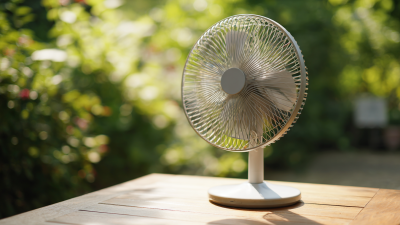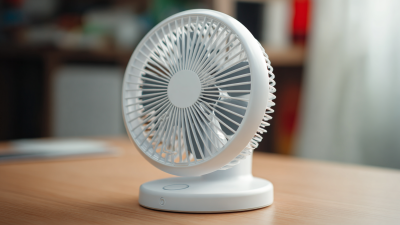In today's fast-paced work environment, maintaining comfort and productivity is essential for employee performance. A recent report from the Global Workplace Analytics indicates that improved comfort in the workspace can boost productivity by up to 25%. Among various tools that contribute to a conducive work atmosphere, a desk fan stands out as a simple yet effective solution.
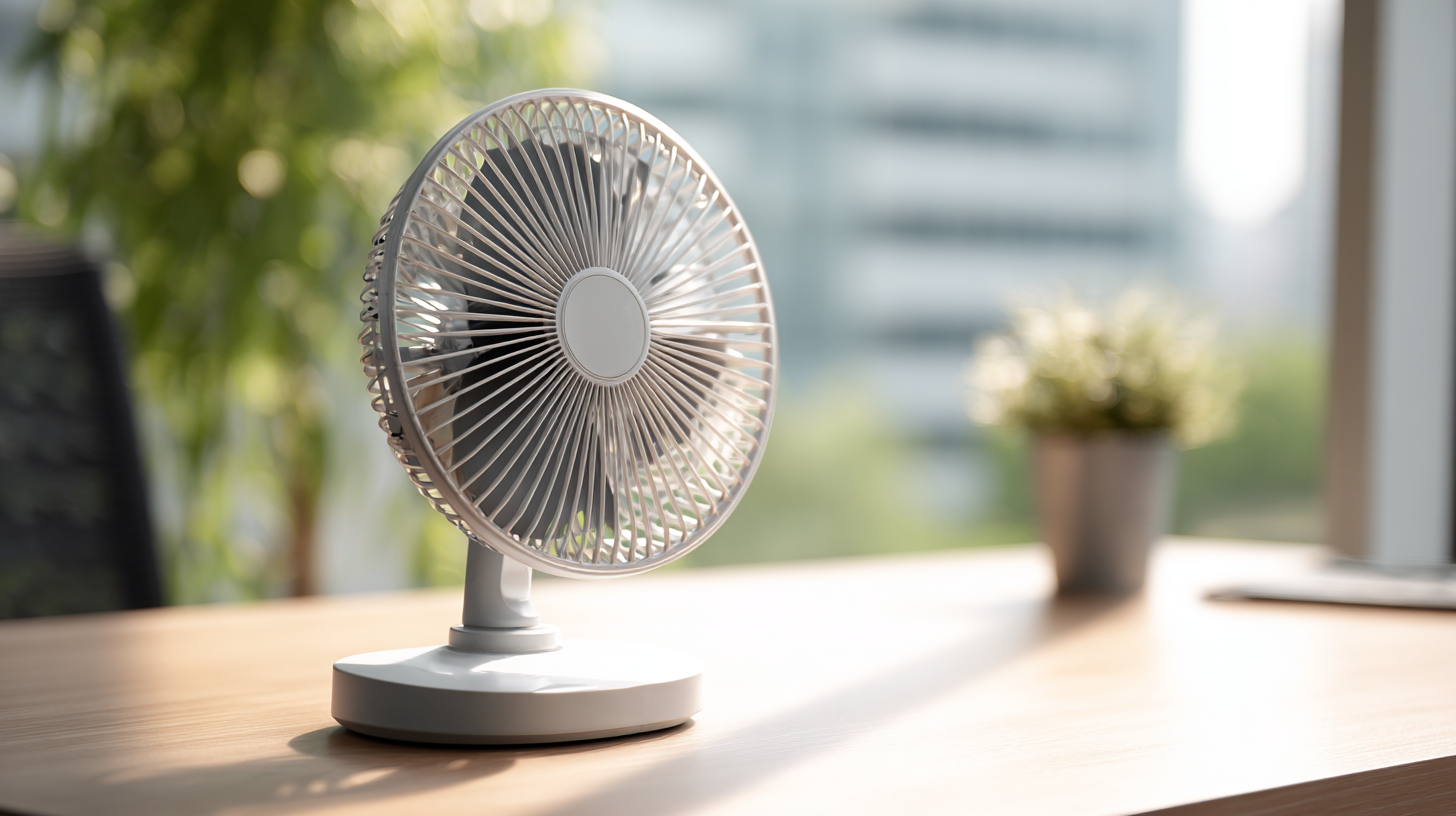
Research from the American Society of Heating, Refrigerating and Air-Conditioning Engineers (ASHRAE) highlights that optimal temperature control can enhance cognitive function and reduce fatigue, thereby leading to a more engaged workforce. With the average office temperature fluctuating around 70 degrees Fahrenheit, incorporating a desk fan not only helps in personalizing individual comfort but also aids in regulating airflow in shared spaces. Thus, understanding the importance of a desk fan can lead to a more enjoyable and productive workplace.
Air circulation plays a crucial role in enhancing workplace comfort and productivity. According to a study by the Global Workplace Analytics, a well-ventilated office can increase productivity by up to 15%. Proper air movement helps regulate temperature and humidity levels, reducing feelings of fatigue and discomfort. Desk fans are particularly effective in promoting air circulation, ensuring that stagnant air is refreshed and that employees can maintain focus.
To optimize the benefits of air circulation, it's essential to create a comfortable workspace. One tip is to strategically position desk fans to maximize airflow without creating excessive noise or distraction. Additionally, incorporating plants into the workspace can help improve air quality while providing a visually appealing environment. Research from NASA indicates that certain indoor plants can remove up to 87% of toxins in the air within 24 hours, further enhancing the overall atmosphere of the office.
Another practical suggestion is to regularly monitor and adjust HVAC systems to ensure consistent performance. The World Health Organization emphasizes the importance of indoor air quality in promoting well-being and cognitive function. By maintaining good air circulation and implementing these tips, employers can significantly enhance the comfort and productivity of their workforce.
In today's fast-paced work environment, a desk fan can significantly enhance comfort and productivity. One of the primary benefits of using a desk fan is its ability to regulate temperature, keeping the workspace cool and preventing fatigue during long working hours. A comfortable climate can lead to improved focus, allowing employees to concentrate better and accomplish tasks more efficiently.
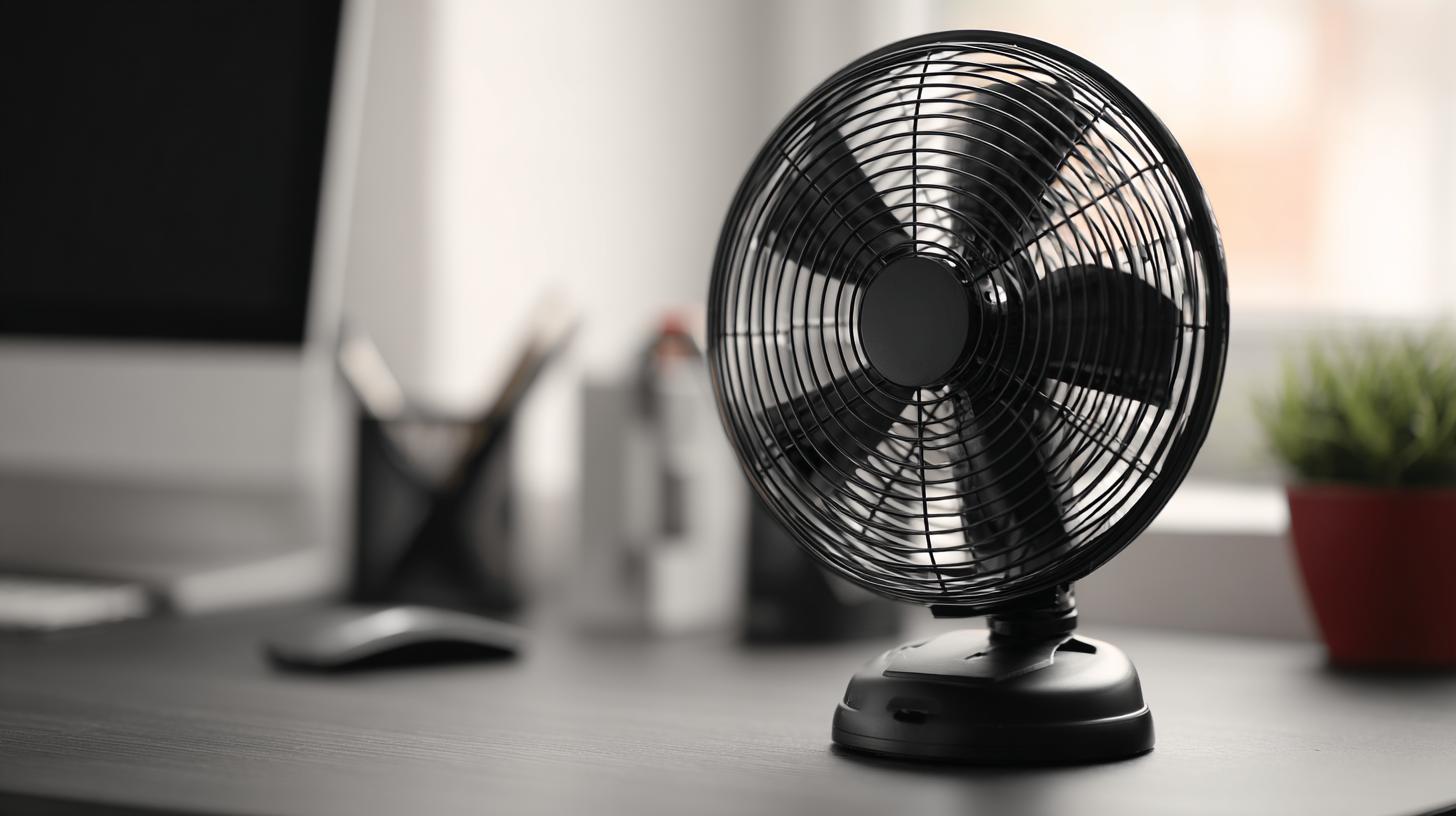
Moreover, the gentle white noise produced by a desk fan can create a calming atmosphere, helping to drown out distracting sounds in an open office setting. This not only enhances concentration but also promotes a sense of privacy, encouraging open communication and collaboration among colleagues. Additionally, the portability of desk fans allows for easy adjustments based on individual preferences, making it an adaptable solution for varying workspaces and personal comfort needs.
By incorporating a desk fan into their workspace, employees can elevate their productivity levels while maintaining a comfortable and enjoyable working environment.
A desk fan is more than just a simple appliance; it plays a crucial role in enhancing focus and concentration in the workplace. According to a study published in the *Journal of Environmental Psychology*, optimal ambient conditions, including airflow, can lead to increased productivity, showing that employees working in well-ventilated areas experience a 25% improvement in their work output. A desk fan helps maintain a comfortable temperature, reducing instances of fatigue and allowing workers to sustain their attention on tasks longer.
Moreover, consistent airflow created by a desk fan can minimize distractions that distract from cognitive tasks. Research from the *American Psychological Association* indicates that a controlled environment helps lower stress hormones, thereby improving mental clarity. By simply circulating air, a desk fan can significantly contribute to better focus and sustained attention, ultimately resulting in higher efficiency and effectiveness in getting work done. As organizations increasingly prioritize employee wellness, a desk fan emerges as a simple yet effective tool for fostering an environment conducive to concentration and productivity.
The data above illustrates the difference in focus levels reported by individuals working in environments with and without desk fans. The increase in focus level from 5 to 8 indicates a significant impact on workplace comfort and productivity when a desk fan is used.
When selecting the right desk fan for your workspace, it's crucial to consider factors such as size, noise level, and airflow. According to a report by the American Society of Interior Designers, a comfortable work environment can increase productivity by up to 25%. Therefore, a well-chosen desk fan can play a vital role in maintaining an optimal temperature without disturbing your workflow.
Choosing a fan with adjustable speed settings allows you to customize airflow based on your preferences and the temperature of your workspace. An analysis from the International Journal of Occupational Safety and Ergonomics indicates that maintaining a comfortable temperature can reduce mental fatigue and enhance focus. Additionally, selecting a fan with a low decibel rating ensures that the device doesn't distract you or your colleagues, supporting a serene work atmosphere that ultimately boosts efficiency. Keep in mind that a compact design can also save desk space, allowing you to keep your workstation organized and clutter-free.
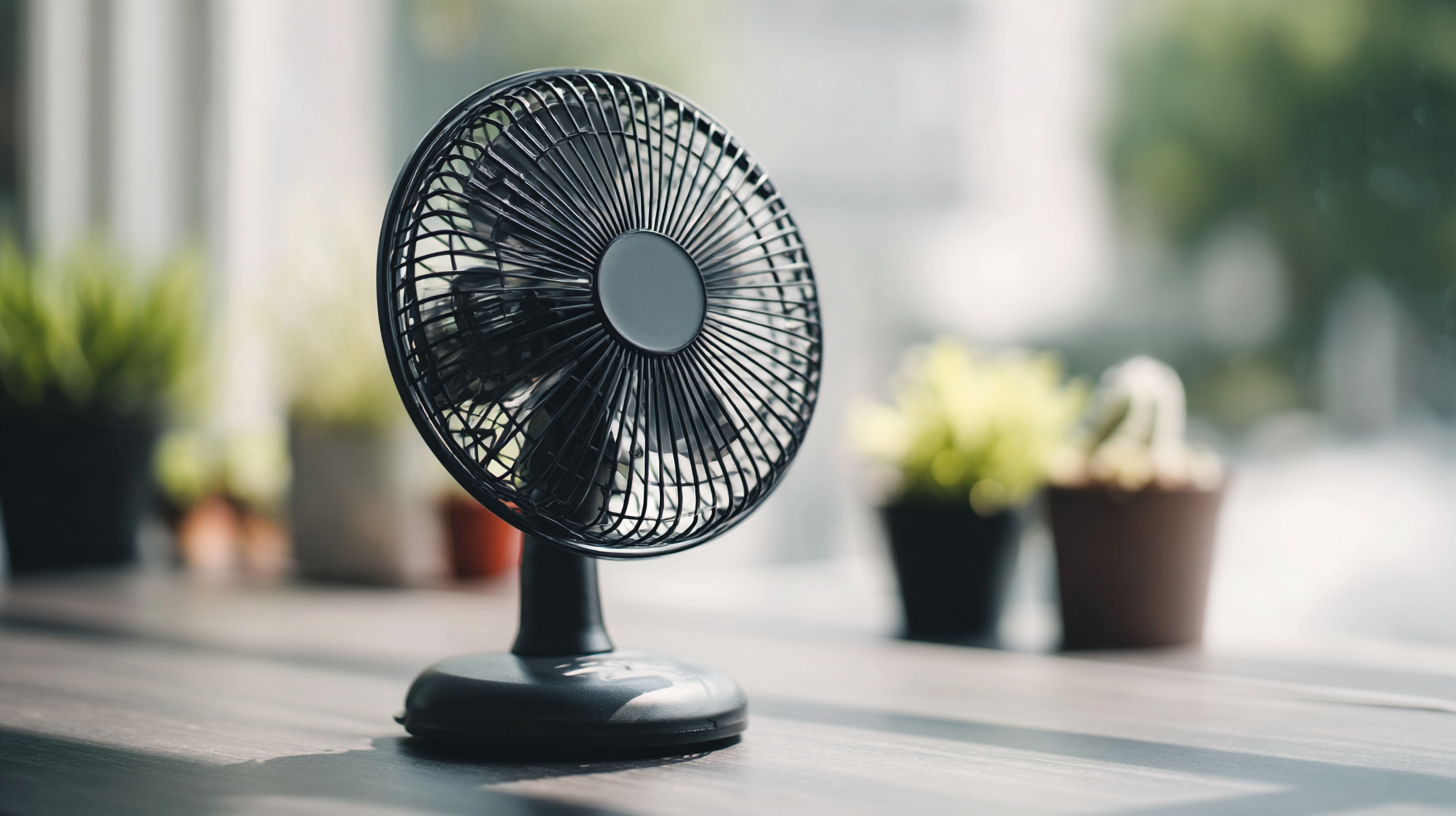
In any workplace, maintaining a comfortable environment is key for boosting productivity. One often overlooked tool for achieving this comfort is the desk fan. Strategic placement of a desk fan can enhance airflow and help regulate temperature, creating a more pleasant work atmosphere.
To maximize the benefits of your desk fan, consider positioning it near sources of heat, such as computers or other electronics. This helps to draw away hot air and circulates cooler air throughout your workspace. Additionally, placing the fan at an angle can improve airflow efficiency—direct it towards your body for immediate cooling or at a 45-degree angle to circulate air across the entire room.
When placing your desk fan, remember to keep it at a height that aligns with your seated position. This allows the airflow to reach you directly without causing a distracting breeze. Ensuring there are no obstructive objects nearby will also allow for unobstructed airflow, helping you stay focused and comfortable for longer periods.


